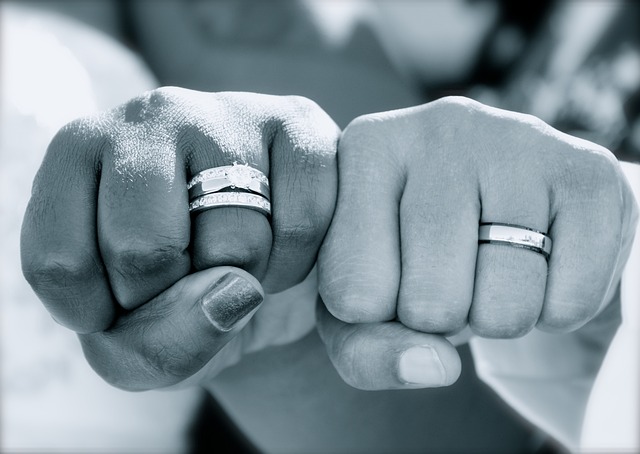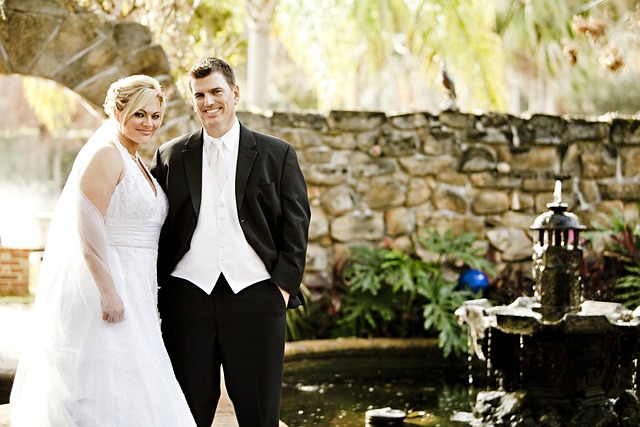To obtain a certified translation of your marriage certificate for legal use in the UK, you must engage with a professional translator who is a member of recognized bodies like the Institute of Translation and Interpreting (ITI) or the Chartered Institute of Linguists (CIOL). This ensures that your document adheres to the strict standards required by UK legal settings. The process involves having the translation verified by the translator with a statement of accuracy and authenticity, which is essential for the recognition and acceptance of the document in inheritance and legal claims. Once translated, submit this certified document to the relevant authorities well in advance to avoid delays in your proceedings, and keep extra copies for your records. Always verify the qualifications of your translation service to guarantee that your marriage certificate translation UK meets all legal requirements.
When navigating the complexities of legal matters, such as inheritance and legal claims, accuracy in documentation is paramount. A pivotal aspect involves the necessity for certified translations, particularly for crucial documents like a marriage certificate in the UK. This article delves into the essential role of professional translation services within the British legal framework, guiding readers through the process of obtaining an authentic marriage certificate translation UK, and outlines key considerations for selecting a qualified translator to ensure legal documents are accurately conveyed. We will explore the stringent requirements for certified translations, common legal documents required for inheritance purposes, and the importance of precision in translations to support legal claims. Additionally, we provide guidance on verifying credentialed translation service providers and the steps to follow post-translation to secure your rights and assets in the UK.
- Understanding the Necessity of Certified Translations for Inheritance and Legal Claims
- The Role of Marriage Certificate Translation UK in Legal Proceedings
- Navigating the Legal Framework for Document Translation in the UK
- Key Considerations for Choosing a Qualified Translator for Legal Documents
- The Process and Requirements for Obtaining a Certified Marriage Certificate Translation
- Common Legal Documents Required to be Translated for Inheritance Purposes
- The Importance of Accuracy and Authenticity in Translations for Legal Claims
- How to Verify the Credentials of a Translation Service Provider in the UK
- Steps to Take After Receiving Your Certified Translation for Inheritance or Legal Claims
Understanding the Necessity of Certified Translations for Inheritance and Legal Claims

When individuals are faced with the complexities of inheritance or the intricacies of legal claims, particularly in a multilingual environment such as the UK, the necessity for precise and authoritative documentation becomes paramount. A marriage certificate translation UK is one such document that often requires certified translation to be legally recognized and accepted within the country’s legal framework. Certified translations ensure that official documents, including marriage certificates, are accurately translated and carry the same weight as their original texts. This certification typically involves a translator who is accredited by a relevant authority, such as the Institute of Translation and Interpreting (ITI) or the Chartered Institute of Linguists (CIOL), and who confirms the translation’s accuracy and authenticity with a statement and signature. The translation must be entirely faithful to the source text, capturing not just the language but also the legal nuances that are critical for the document’s intended purpose. Inheritance proceedings and legal claims often hinge on the exact interpretation of documents, making certified translations an indispensable tool in these situations. It is crucial for those involved to procure such translations to navigate the legal system effectively and without complications arising from language barriers or misinterpretations.
The Role of Marriage Certificate Translation UK in Legal Proceedings

When an individual from the UK passes away, and their marital status was recognized under foreign law through marriage certificate translation UK, it becomes imperative to have accurate and certified translations of the marriage certificate for legal proceedings related to inheritance. The marriage certificate, being a critical document, serves as evidence of the legally recognized union between two individuals. In scenarios where one or both parties were married outside of the UK, the translation must be executed by a professional translator who is accredited by relevant authorities, such as the Institute of Translation and Interpreting (ITI) or the Chartered Institute of Linguists (CIOL) in the UK. This ensures that the translated document holds legal weight in both the UK and the country where the marriage took place. The certified translation of the marriage certificate is essential for legal claims, as it facilitates the recognition of marital status under UK law, which is crucial for inheriting assets or determining rights within the context of legal disputes. It is a prerequisite for any probate or inheritance process where the deceased’s marital status outside the UK is a factor, and failure to provide such documentation can lead to complications or delays in settling an estate. Therefore, obtaining a marriage certificate translation UK that is both accurate and certified is a fundamental step for individuals involved in legal proceedings concerning inheritance or other claims following the death of a spouse.
Navigating the Legal Framework for Document Translation in the UK

In the realm of legal matters within the UK, the precise and accurate translation of documents is paramount, especially when it pertains to inheritance or making legal claims. When one needs to present a marriage certificate in the UK for legal purposes, such as inheriting assets or contesting a will, it is imperative that this document be translated by a professional who holds a Certified Translator qualification from an institution like the Institute of Translation and Interpreting (ITI) or the Chartered Institute of Linguists (CIOL). These translators ensure that the translation not only conveys the original meaning but also complies with UK legal requirements. The certified translation must bear a clear statement confirming its accuracy and completeness, along with the translator’s full name, contact details, and signature. This certification serves as a testament to the authenticity of the translated document, which is crucial for acceptance by UK authorities, including courts, government agencies, and legal entities. Navigating this legal framework requires a deep understanding of both the source and target languages, as well as the specific regulations governing legal document translation in the UK. This ensures that individuals can move forward with their inheritance or claims without hindrance due to language barriers or uncertified translations.
Key Considerations for Choosing a Qualified Translator for Legal Documents

When navigating the intricate process of inheritance or legal claims, particularly within the context of marriage certificate translation in the UK, accuracy and professionalism are paramount. A qualified translator with expertise in legal document translation is an indispensable asset in this scenario. Such a professional should be well-versed in both languages involved and the legal terminology specific to the jurisdiction of the UK. Their proficiency ensures that the translated marriage certificate, or any other legal document, is not only linguistically correct but also legally sound, thereby maintaining the integrity and validity of the original text. It is crucial to verify their credentials, including certifications from relevant bodies, and to confirm their experience in handling similar translations. Additionally, opt for a translator who is accredited by official authorities like the Institute of Translation & Interpreting (ITI) or the Association of Translators and Interpreters of the United Kingdom (ATIUK), as their work will often come with an official stamp or certificate that attests to the accuracy of their translation. This level of due diligence helps safeguard against potential legal pitfalls that could arise from misinterpretations or mistranslations, ensuring that your legal documents are prepared for use in a UK court without issue.
The Process and Requirements for Obtaining a Certified Marriage Certificate Translation

When navigating legal matters such as inheritance or making legal claims in the UK, the accuracy and authenticity of documents are paramount. A certified marriage certificate translation is often a requisite for individuals married to a non-British national who wish to apply for a spousal visa or when settling estate affairs post-marriage. The process of obtaining a certified translation involves several critical steps to ensure the document’s legality and reliability are upheld.
To commence the process, one must first identify a professional translator qualified and accredited by relevant UK authorities, such as the Institute of Translation and Interpreting (ITI) or the Chartered Institute of Linguists (CIOL). These professionals specialise in marriage certificate translation UK, ensuring that the translated document reflects the original’s content with precision and accuracy. The translator must provide a written statement affirming that the translation is complete and true to the original, along with their official stamp or seal. This declaration attests to their responsibility and the integrity of the translation. Furthermore, the translation should be accompanied by any necessary certification from the relevant foreign authorities, confirming that it can be used in legal settings within the UK. This typically involves an apostille or similar certificate of authenticity, depending on the issuing country’s regulations. By adhering to these requirements and following due process, individuals can secure a certified marriage certificate translation that meets the legal standards required for inheritance and legal claims in the UK.
Common Legal Documents Required to be Translated for Inheritance Purposes

When an individual passes away and their heirs are from another country, it is often necessary to have legal documents translated into the language of the deceased’s home country. Certified translations of these documents play a crucial role in the probate process, allowing international heirs to claim their inheritance rights. Common legal documents that frequently require translation include marriage certificates, which are essential for proving marital status and any potential claims to an estate. In the UK, a marriage certificate translation must be conducted by a professional translator who is accredited to provide certified translations recognized by the relevant authorities. This ensures that the document’s authenticity and legal standing are upheld, facilitating a smoother inheritance process for international beneficiaries. Additionally, other documents such as wills, death certificates, and any court orders or judgments may also need to be translated. These translations must adhere to the legal requirements of both the issuing country and the country where the inheritance is being administered, typically requiring an official stamp or certificate of accuracy to be appended by the translator. This level of precision and certification is vital for legal claims that may arise from an inheritance, ensuring that all parties involved can trust the translations’ accuracy and legality.
The Importance of Accuracy and Authenticity in Translations for Legal Claims

In legal contexts, the precision and authenticity of translations are paramount, especially when it comes to inheritance and legal claims. A marriage certificate translation UK, for instance, must accurately convey all details from the original document, as any discrepancies could lead to complications or even invalidate a claim. The stakes are particularly high in legal matters where certificates like marriage licenses are pivotal pieces of evidence. Accuracy is crucial because it ensures that the translated document is a true reflection of the original, which is legally required to be recognized as equivalent to the source document. This equivalence is necessary for the document to be accepted by authorities and institutions involved in legal proceedings. Authenticity, on the other hand, refers to the verification that a translation is both complete and faithful to the content of the original. Certified translations often come with a declaration of accuracy and authenticity from a qualified translator or translation service, attesting to the truthfulness of their work. This level of scrutiny is essential for legal documents, including marriage certificate translations UK, as they are used to demonstrate entitlement to benefits, prove familial relationships, or substantiate inheritance rights. Ensuring that these translations are both accurate and authentic is not just a matter of due diligence but a critical component in the successful resolution of legal matters involving international parties.
How to Verify the Credentials of a Translation Service Provider in the UK

When engaging with a translation service provider for certified translations in the UK, particularly for sensitive documents such as marriage certificates, it is imperative to verify their credentials thoroughly. A credible translation service should possess specific qualifications and accreditations that underscore their proficiency and reliability. Firstly, check if the service provider is a member of prestigious institutions like the Institute of Translation and Interpreting (ITI) or the Chartered Institute of Linguists (CIOL). These organizations ensure that members adhere to high standards of professionalism and ethics in their work. Additionally, look for translators who have earned the Associate of Institute of Translators and Interpreters (AITI (M)) or Membership of the Chartered Institute of Linguists (MCIL) qualifications, which signify they have been rigorously assessed for their translation skills.
Furthermore, a reputable translation service will provide proof of their Professional Qualification in Translation (PQT) or hold a Bachelor’s or Master’s degree in translation studies from a recognized UK institution. This academic background, combined with practical experience, ensures that the translator is well-equipped to deliver accurate and faithful translations of marriage certificates and other legal documents. Always request examples of their previous work or client testimonials to further validate their expertise. By taking these steps, you can confidently select a translation service in the UK that meets the stringent requirements for certified translations, guaranteeing that your important documents are handled with the utmost professionalism and care.
Steps to Take After Receiving Your Certified Translation for Inheritance or Legal Claims

Upon receiving your certified translation for inheritance or legal claims, it is crucial to verify the document’s accuracy and authenticity. The translation service provider should adhere to the specific regulations set forth by the UK’s relevant authorities, such as the Institute of Translation and Interpreting (ITI) or the Chartered Institute of Linguists (CIOL). Ensure that the marriage certificate translation UK you have in hand bears a statement of accuracy and a signature from a certified translator recognized by the legal bodies involved. This certification typically includes an attestation that the translated document is a true and faithful representation of the original, which is imperative for legal proceedings.
Once the translation is confirmed to be accurate and official, the next steps involve submission to the relevant authorities. Depending on the requirements of your specific case—be it an inheritance claim or another legal matter—you may need to present this certified document to courts, government offices, or financial institutions. It is advisable to provide these entities with ample time to review and process your translated documents to avoid any delays in your legal proceedings. Additionally, keep extra copies of the certified translation for your records, as they might be needed for future reference or additional submissions. Ensuring that all translations meet the precise standards required by UK law is essential for the successful resolution of inheritance and legal claims.
When engaging with legal matters such as inheritance and claims in the UK, the accuracy and authenticity of translations are paramount. The necessity for certified translations, particularly for documents like marriage certificates, cannot be overstated, given their legal implications. This article has elucidated the critical steps involved in navigating the UK’s legal framework for document translation, emphasizing the key considerations for selecting a qualified translator and the stringent requirements for obtaining a certified marriage certificate translation UK. It is clear that due diligence in verifying the credentials of your chosen translation service provider is essential to ensure the integrity of your translated documents. With these insights, individuals can confidently proceed with their inheritance or legal claims, knowing that their translations are not only compliant but also accurately convey the intended meaning. This article serves as a comprehensive guide for those navigating the complexities of legal translation within the UK’s jurisdiction.
